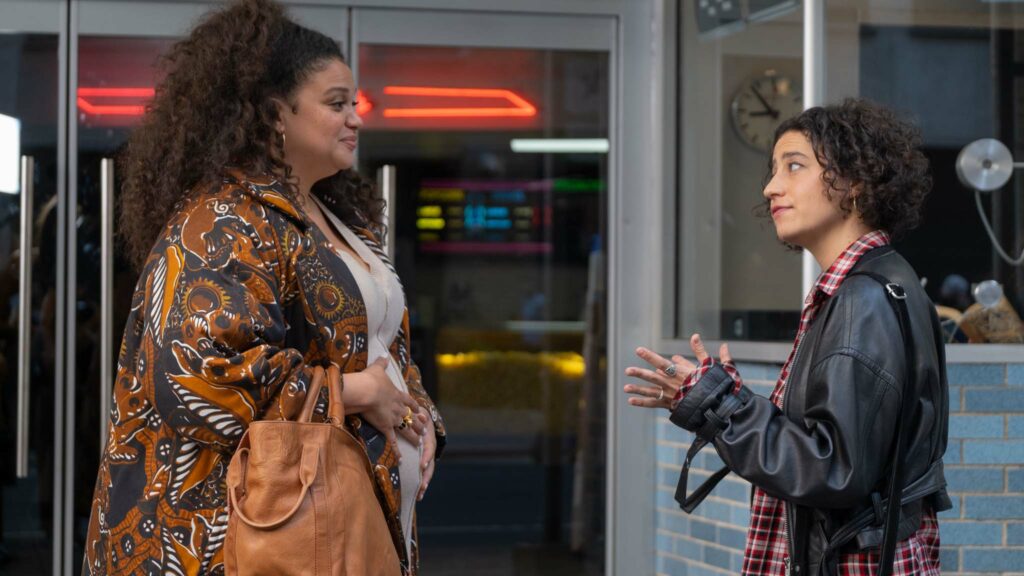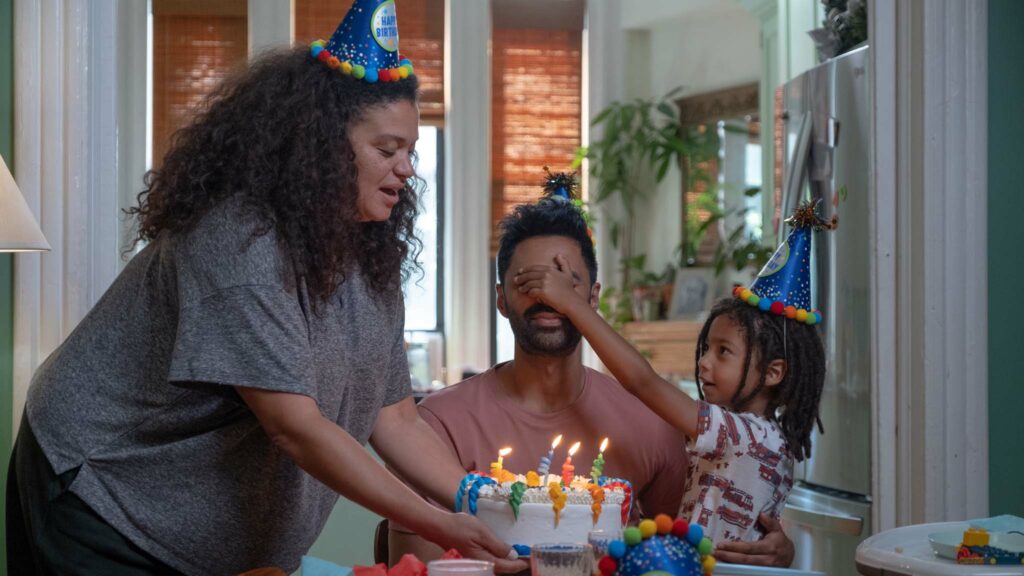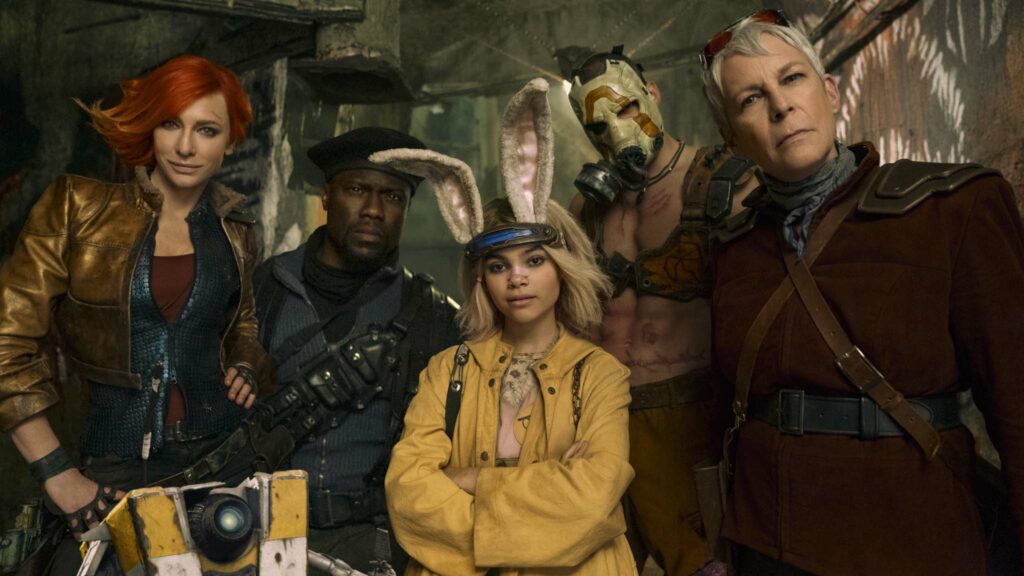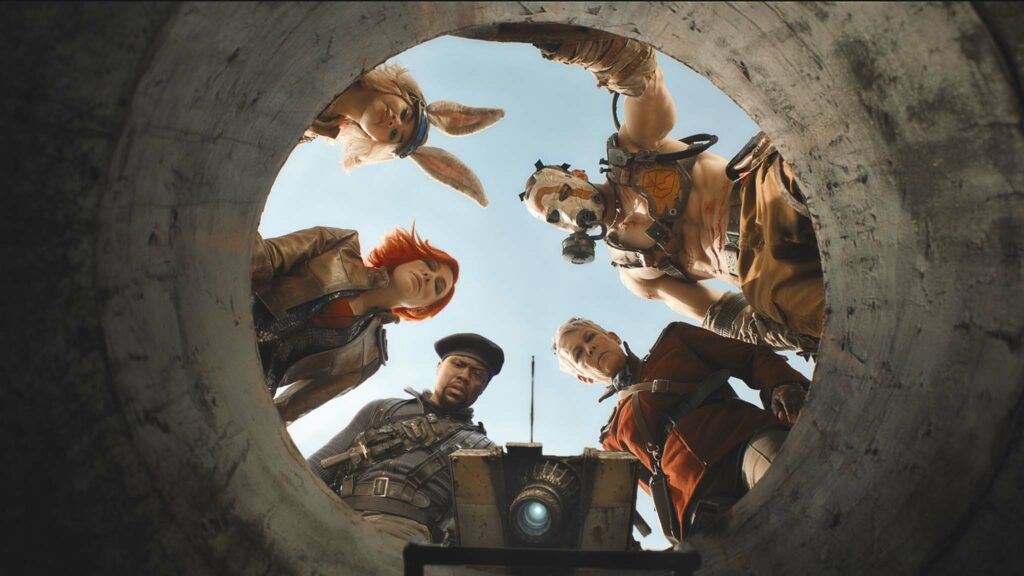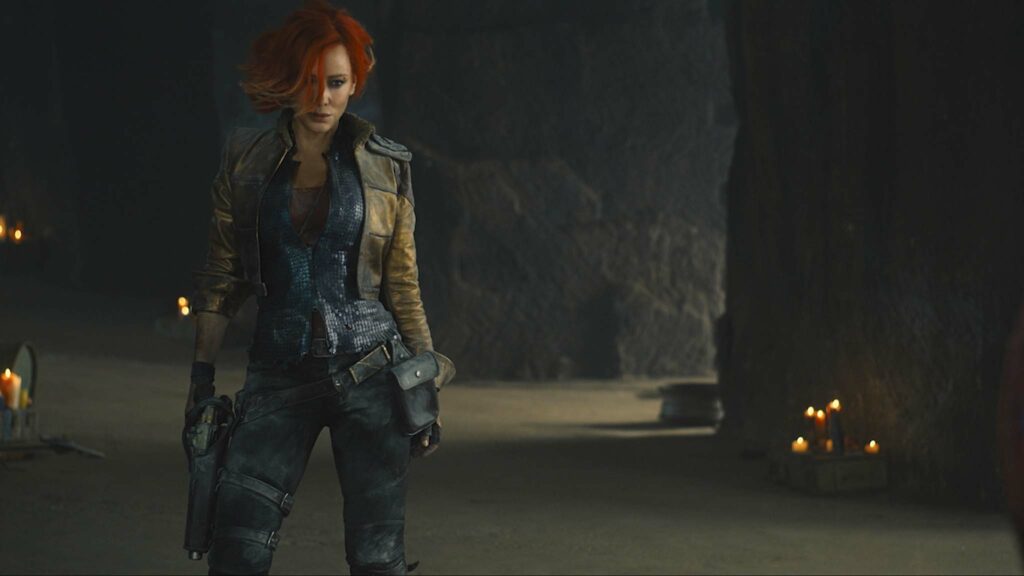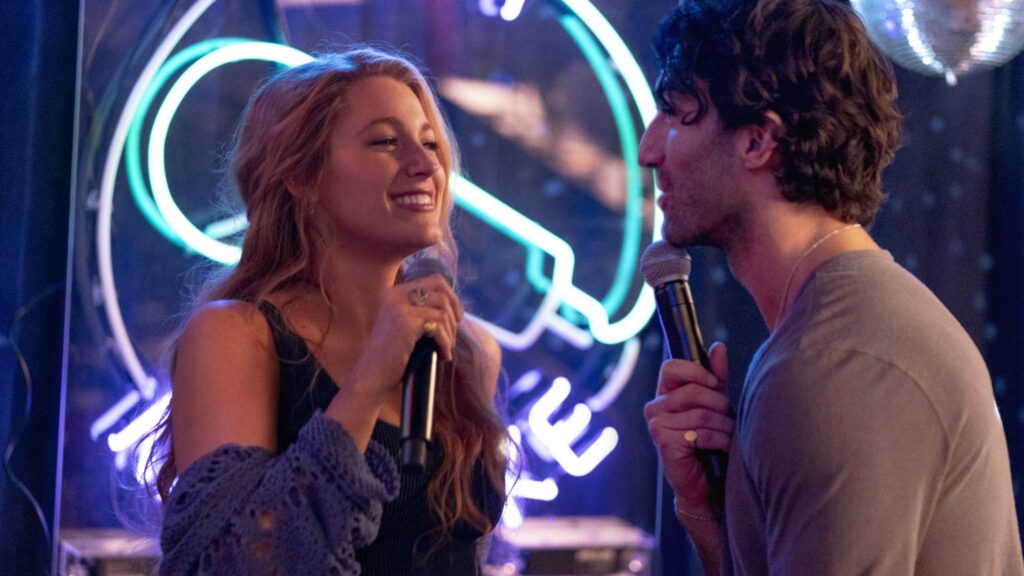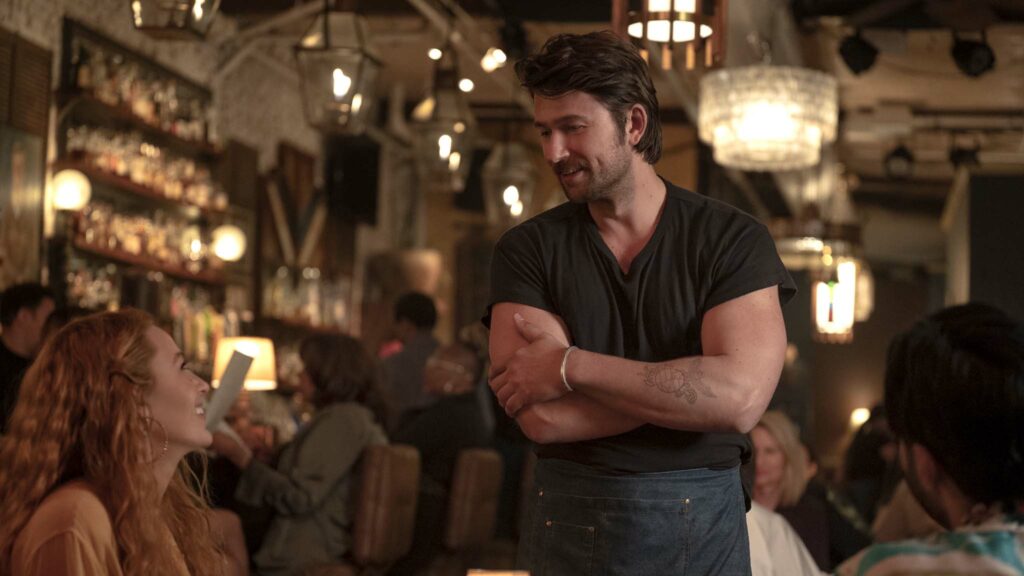Comedy
Babes (15)
Review: The title of director Pamela Adlon’s raucous and touching comedy refers not only to mewling newborns, which strain the sisterly bonds between two best friends, but also to the characters’ proud and unapologetic reclamation of a slang term for attractive young women. Written by actor Ilana Glazer and Josh Rabinowitz, Babes is a gloriously filthy-minded platonic love story between gal pals, who experience very different but equally hilarious journeys through motherhood.
Glazer and co-star Michelle Buteau exude the warmth and familiarity of unabashedly vulgar thirtysomethings, who have been confidants for decades and habitually text each other while they sit on the toilet. The laughter quotient approaches the dizzying heights of Bridesmaids in barnstorming set pieces including a snort-inducing birth that establishes the film’s fixation with bodily fluids and vivid descriptions of a dilating cervix.
Elsewhere, a glutinous mochi rice cake is expertly summarised as “a disembodied testicle”, a night of magic mushroom-fuelled hallucinations is a delirious delight, and Glazer and Rabinowitz’s script relishes the aftermath of a four-year-old child being exposed to a devilish 15-certificate horror film. Adlon’s picture is less sure-footed in serious conversations such as one woman’s awkward reunion with her estranged agoraphobic father (Oliver Platt) and an unexpected hammer blow delivered in a sexual health clinic run by twin brothers (Kenny and Keith Lucas).
Yoga teacher Eden (Glazer) and dentist Dawn (Buteau) are lifelong best friends, who have celebrated Thanksgiving morning together for the past 27 years. During their traditional visit to the cinema, Dawn goes into labour and Eden offers wise-cracking support to herald the safe arrival of a baby girl named Melanie. On her way home from the birth via New York’s subway system, Eden meets actor Claude (Stephan James), who has just finished shooting a new Martin Scorsese film in which he has two lines of dialogue as a “sexy black waiter”. The pair bond over sushi and getting tested each month at the same sexual health clinic.
“I’m on my period so I can’t get pregnant,” Eden naively informs Claude before they sleep together and have unprotected sex. He subsequently ghosts Eden and when a pregnancy test confirms her nagging intuition, she proceeds with the pregnancy with Dawn and her understanding husband Marty (Hasan Minhaj) as steadfast support. Eden’s wayward journey through trimesters under the care of follicly-challenged obstetrician and gynaecologist Dr Morris (John Carroll Lynch) strains the women’s relationship.
Babes sensibly plays to its comedic strengths and mines generous guffaws by focusing on intimate and messy details of pregnancy that were glossed over in films like Knocked Up and Juno. The tonal changes are jarring but Glazer and Buteau’s dynamic pairing is sufficiently slick to oil the grinding cogs of a predictable and crowd-pleasing plot.
Find Babes in the cinemas
Action
Borderlands (12A)
Review: Writer-director Eli Roth has gone soft. The Massachusetts-born filmmaker made his name with gruesome horrors including the first two Hostel pictures, Cabin Fever and yesteryear’s seasonal bloodbath, Thanksgiving. He tones down the splatter and gore to helm a tiresome barrage of otherworldly mayhem based on a popular series of first-person shooter video games, which pit treasure-seeking players against the militaristic might of the Atlas Corporation in a galaxy far-ish away filled with monsters and mystery.
Co-written by Roth and Joe Crombie, Borderlands borrows a linear central quest and many of the characters from the games, bookmarked by underwhelming action set pieces devoid of pulse-quickening thrills. At one point, a merry band of misfits escapes certain death by driving into the open mouth of a gargantuan sandworm-like creature and exploding out the back of the creature’s head. “Feel free to applaud!” barks Kevin Hart’s redemption-seeking mercenary, behind the wheel of the escape vehicle. Co-stars respond enthusiastically. I was not so inclined.
More-hit-than-miss comic relief comes from a wisecracking unicycle droid inherited from the games, which is bolted together using spare parts from R2-D2, WALL-E and Johnny 5 from Short Circuit. Jack Black’s high energy vocal performance of this deranged automaton provides a generous smattering of giggles between the yawns. During one skirmish, Blanchett’s world-weary antiheroine despairs to camera, “How are we going to get through this?” I internally narrated the same words.
She plays no-nonsense bounty hunter Lilith, who is hired by narcissistic corporate overlord Atlas (Edgar Ramirez) to track down his missing daughter, Tiny Tina (Ariana Greenblatt). The girl has been kidnapped by mercenary Roland (Hart) and spirited away to Lilith’s godforsaken home planet of Pandora. “It’s the kind of place you don’t ever want to return to,” growls the bounty hunter but for an exceedingly generous fee, she agrees to the mission. Back on home soil, Lilith inherits a wisecracking robot companion named Claptrap (Black) and when she does eventually locate Tiny Tina, the demolition-happy moppet is guarded by Roland and a hulking protector, Krieg (Florian Munteanu). Deranged archaeologist Dr Patricia Tannis (Jamie Lee Curtis) joins the band of misfits as they learn the strength of fighting for each other.
Borderlands is a soulless, lumbering behemoth of functional digital effects and casual world-building, which repeatedly disappoints on a head-scratching scale equivalent to Star Wars: Episode I – The Phantom Menace. Hart and Oscar winners Blanchett and Curtis are collateral damage in emotionally starved roles. “There is no salvation without sacrifice,” Dr Tannis counsels the ragtag team. Audiences who sacrifice their precious time and money for Roth’s malfunctioning picture won’t unearth any salvation.
Find Borderlands in the cinemas
Romance
It Ends With Us (15)
Review: Love hurts, but the fists and fury of an intimate partner should never be the source of that pain. Adapted by screenwriter Christy Hall from Colleen Hoover’s novel, It Ends With Us is a glossy romantic drama which explores the complexities of abusive relationships, tracing the psychological impact of physical and sexual violence across generations of women and men, who largely suffer in silence. Scenes of intimidation, coercive control and jealous rage are sensitively handled, focusing predominantly on the aftermath of each incident such as a bite mark on a shoulder or the bloodied face of a victim being wheeled on a stretcher into the back of an ambulance.
“Naked truths aren’t always pretty,” observes the film’s lead character, played with quiet resolve by Blake Lively. Co-star Justin Baldoni, who also directs, counters the assertion with his gratuitous topless scenes to showcase an outrageously chiselled torso before his intensely self-assured medic reveals chinks of ugliness within. Hoover’s novel provides swooning dialogue (“If you find yourself in a position to fall in love again, fall in love with me!”) but Hall’s script edits the source text for brevity, punctuating the self-reflection with dreamy flashbacks to a romance between the teenage heroine (Isabela Ferrer) and her schooldays sweetheart (Alex Neustaedter).
Lily Bloom (Lively) returns to her childhood home of Plethora, Maine, to attend the funeral of her father Andrew (Kevin McKidd), the former town mayor who beat his wife Jenny (Amy Morton) behind closed doors. The eulogy has been entrusted to Lily. “It’s one of the most beautiful things I’ve never written,” she confesses, refusing to lavish kind words on a brute, who terrorised everyone he claimed to love.
A defiant Lily returns to Boston and is attracted to neurosurgeon Ryle Kincaid (Baldoni), who lives on the top floor of an apartment block, next door to his younger sister Allysa (Jenny Slate) and her husband (Hasan Minhaj). Lily surrenders to Ryle’s advances but one night, she glimpses a troubling side to her beau. Childhood love Atlas Corrigan (Brandon Sklenar), who warrants a heart-shaped tattoo on Lily’s shoulder, also happens to be in Boston. Old flames reconnect and Lily faces a stark choice between her present and past.
It Ends With Us refers to Lily’s efforts to break the cycle of intimate partner violence, which has gnarled the branches of her family tree. Lively anchors the film and is compelling, catalysing molten on-screen chemistry with Baldoni for their steamy couplings. Sklenar has limited screen time to make an impact. Slate provides welcome comic relief but also urges self-reservation with one of the film’s hammer blow lines (recited verbatim from the novel). Expertly soundtracked montages bloat the running time beyond two hours. It ends with empowerment and regretful acknowledgment.
Find It Ends With Us in the cinemas



